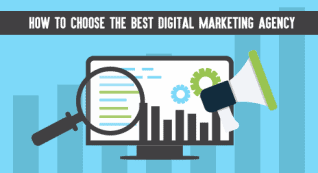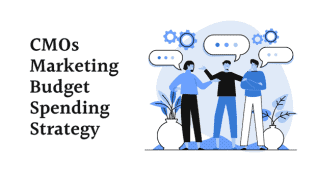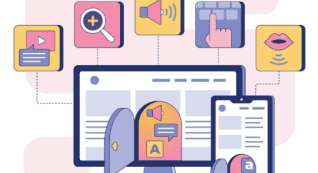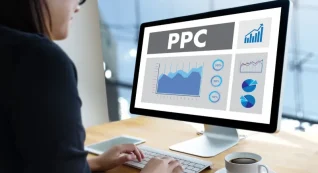Data have irrevocably changed the way we live. It is the cornerstone of many services and organizations, from social media companies to banks, retailers, and governments. Your name, address credit card number are all collected, analyzed, and stored – even most importantly.
What is GDPR? What do I need to know about GDPR? What are the requirements of GDPR for me as a company, and what are the benefits? What does it mean for my business if I don’t comply with GDPR?
All these questions will be answered in this article.
Table of Contents
What Does GDPR Stand For?
GDPR stands for General Data Protection Regulation – A new law designed to protect European citizens from data privacy violations by restricting companies.
What Is GDPR Exactly?
General Data Protection Regulation is about how companies can collect, store, use, and share people’s personal information. General data protection regulation contains provisions and requirements related to the processing of personal data. It also has rules on what they need to do when there has been a data breach or if someone requests their information be deleted from the company’s database.
This law is designed to help protect European citizens from privacy violations by restricting companies.
The European Union tries to make it easier for both citizens and businesses to take advantage of the digital economy.
How Did GDPR Come About?
GDPR is the newest data protection law. It came about because of a set of data privacy laws or standards defined by the European Union which will make it easier for people to have their personal information protected in every part of Europe, no matter where they are located or who has collected this information.
Who Does GDPR Apply To?
GDPR applies to any company or organization that collects data on people in the EU, no matter where they are located.
The GDPR will also apply to all organizations outside of Europe if their products and services touch EU citizens’ data – for example, a US-based website with an English language option with customers living in France.
Who Within My Company Will Be Responsible for Compliance?
The GDPR ensures that Europeans are more aware of the various roles and responsibilities for ensuring compliance. These include data controller, data processing officer or data processor, and data protection officer DPO – yikes!
The controllers define how personal information is processed as well as what purposes it will be used for. They also need to make sure outside contractors follow their standards when processing this type of sensitive info.
What Is GDPR Compliance?
The data protection regulation, GDPR compliance means being able to meet all of the rules set by GDPR. This includes making sure that your company follows these important principles:
- Being transparent with customers about how their data is being processed.
- Minimizing the amount of personal data collected from customers.
- Storing all this information securely.
- Providing people with some control over their data by asking them to opt-in before collecting any data about them.
What Does GDPR Mean For Businesses?
For short, the General Data Protection Regulation, or GDPR, is the one set of rules that will apply to companies doing business within Europe. This means the reach extends further than just inside EU(European Union) borders because international organizations based outside but with a presence in ‘European soil’ need to comply as well.
In other words: no matter where you are on this planet – if your company does any work whatsoever involving European people’s data – you’ll have some new responsibilities under these regulations, which took effect May 25th, 2018!
With GDPR, companies face much less of a legal burden in the European region. With one authority overseeing all member states and streamlining data regulations across Europe, it will be easier for businesses to operate within this space.
The Commission claims that once these rules are enforced on May 25th, 2018, GDPR enforcing €2.3 billion worth of savings per year by simplifying operations throughout the continent.
What Does GDPR Mean For Consumers/Citizens?
In most cases, this new law means people will have more control over their data. What GDPR doesn’t provide is a way for them to get compensated if that data has been mishandled by an organization and then sold or leaked on the internet.
- Some of the benefits consumers could see from GDPR compliance are:
- Companies should be more transparent about how they plan on using people’s data
- They should also explain the consequences for refusing to share certain information and how it may limit their service.
- Companies will need consent from individuals before collecting any of their personal data, making sure that there is a “clear agreement” between both parties.
- What’s more, GDPR gives people the right to know what information is being held about them and to who it has been shared.
What Are the Penalties for Non-Compliance With GDPR?
The risks of not complying with GDPR may include:
- Fines – A penalty for non-compliance can reach up to €20 Million or four percent of a company’s worldwide annual turnover, whichever is higher.
- Data Breach – When personal data is leaked or hacked, GDPR requires that the organization takes swift and appropriate action to protect its customers.
What’s more, when a company violates any of the tenets of data protection law provided by GDPR, they’ll be required to notify both regulators and customers about what information was compromised – breaching that rule is punishable by a fine of up to €100,000.
What Are Some of the Benefits of Being Compliant With GDPR?
There are many benefits to GDPR compliance. Not only will you avoid fines, but your business can also benefit by being more trusted among customers and partners.
For example:
- Your business may be able to become the first choice of a new customer looking for an organization that is willing to offer good protection policies on their data. What’s more, complying with these regulations could help you attract employees as well.
- Your customers may also be more inclined to share personal data with your company if they know it will be protected by GDPR and not sold or mishandled in any way! What’s more, this could lead them to become repeat customers over the long term – all because you made sure that GDPR compliance is a top priority.
What Is Personal Data Under the GDPR?
This new legislation will protect all data, including genetic and biometric information. Currently, only name, address, and pictures are considered “personal” under the law, but GDPR extends this definition to include IP addresses which could be used as a unique identifier in some cases.
It also includes sensitive personal data such as genetic or biometrics that can uniquely identify individuals where they may not have agreed beforehand for their identity to be revealed, like DNA testing kits at your doctor’s office.
What Was the GDPR Compliance Deadline?
The GDPR compliance deadline is May 25th, 2018.
What Is a GDPR Breach Notification?
In the event of a data breach, GDPR requires that companies notify regulators and customers about what information was compromised.
Moreover, they’re required to take appropriate action to protect them from future problems as well.
When Does an Organization Need to Make a Notification About a Breach?
Organizations must notify the public about a breach within 72 hours of becoming aware. However, they’re required to report breaches that lead to a risk for people’s rights and freedoms or immediately involve large quantities of data.
Final Words
GDPR is a new law that was put in place to protect personal data. It gives people the right to know what information is being held about them and who it has been shared with and when they can refuse to share certain information or request for their data to be erased.
If your company needs help understanding how GDPR will affect you and want someone on your team who knows all the regulations inside out, reach out today! Our experts at eMojo have years of experience dealing with customer-facing compliance issues like this.














